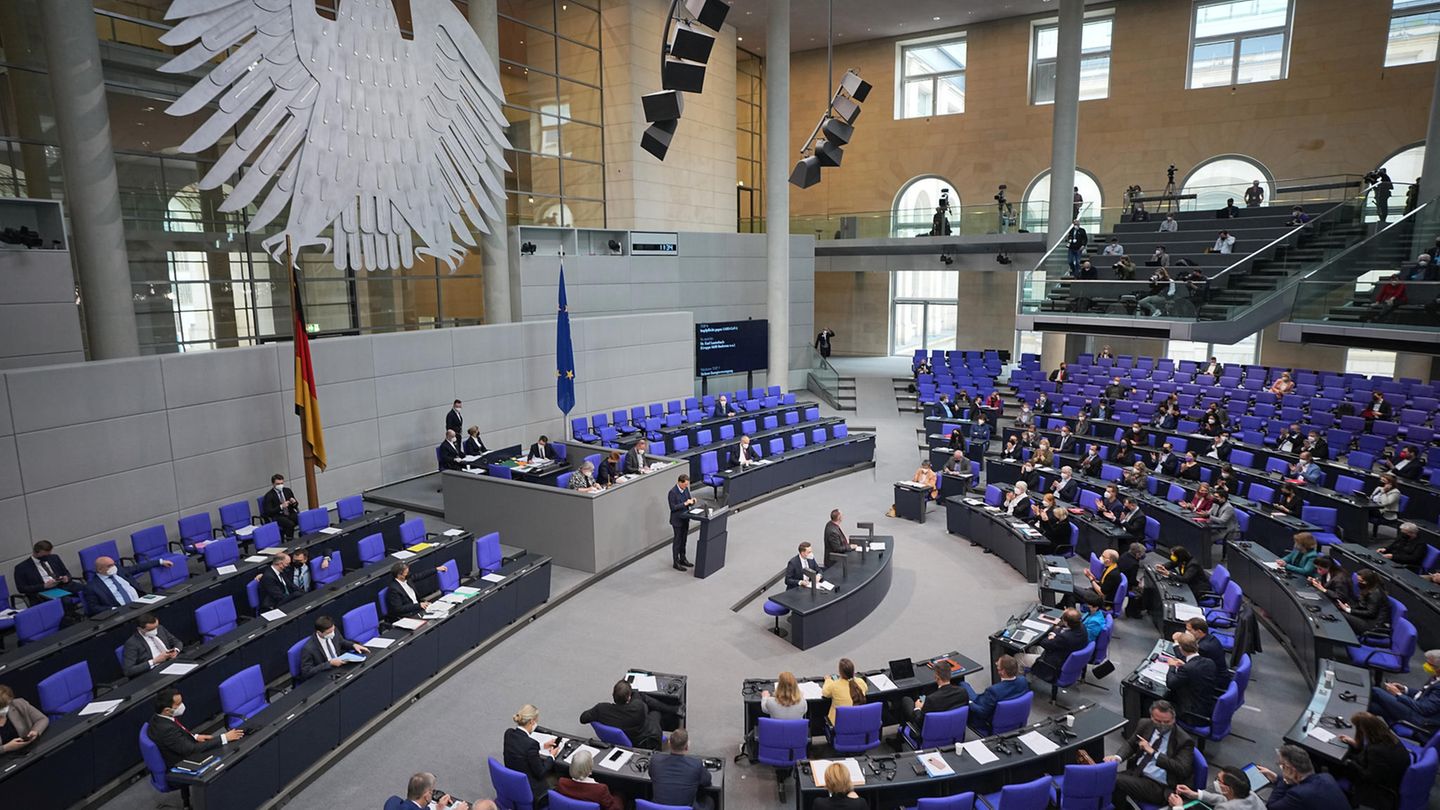The situation in the vaccination debate is muddled. No proposal, it seems, finds a sufficient majority in Parliament. Before the vote next week, an interview by SPD leader Saskia Esken makes you sit up and take notice. Suddenly, the Union could be the winner.
In the course of the Ukraine war, the contentious debate about a general obligation to vaccinate came to an almost complete standstill. However, that should change in the coming week at the latest. Then, on April 7, the vote in the German Bundestag on the topic will be on the agenda. And at the moment it is still completely uncertain how Parliament will decide on the motions that have been submitted.
For Chancellor Olaf Scholz, the date is not entirely irrelevant. Together with other members of his cabinet, such as Health Minister Karl Lauterbach and Vice Chancellor Robert Habeck, Scholz had made it clear that he was a clear advocate of general vaccination. However, the traffic light coalition did not bring its own motion into the debate because resistance to compulsory vaccination is particularly strong among the FDP. Instead, Scholz put the issue in the hands of Parliament, an orientation debate followed, and various group proposals are now on the table, which are to be voted on next Thursday.
The problem for Scholz: There is currently no parliamentary majority for any application, especially not for a general vaccination requirement, for which the Chancellor had personally campaigned. As was the case recently when the general corona measures expired, the impression could arise again that the smallest coalition partner, FDP, of all people, can impose its will on central issues. For Scholz, who likes to demonstrate his claim to leadership, it is certainly not a pleasant idea.
Esken indicates rapprochement with Union when vaccination is compulsory
Against this background, SPD leader Saskia Esken is now giving signals that make people sit up and take notice. In an interview with the news portal “t-online”, Esken hints at a compromise with the Union on the vaccination issue for the first time. “A gradual implementation of compulsory vaccination is an approach that can be approached,” said Esken in the conversation. Esken also considers the Union’s demand for a vaccination register to be “reasonable”. “But you shouldn’t make it a prerequisite – because we don’t have the time for that. But you could set up a vaccination register parallel to the implementation of compulsory vaccination.” Esken emphasized: “Overall, I can well imagine that we will come together.”
Such a merger would be quite a surprise. So far, Scholz and other advocates of compulsory vaccination had supported the draft law by MPs from the traffic light group, which provides for compulsory vaccination for all adults over the age of 18. It will apply from October 1, 2022 and will be limited to December 31, 2023. Another traffic light group around the FDP MP Andrew Ullmann advocates an age-related vaccination requirement from the age of 50. An intergroup around the FDP politician and Bundestag Vice President Wolfgang Kubicki has also formulated an application with a no to vaccination.
Union wants a quasi-vaccination requirement in stock
The proposal of the Union faction, to which Esken can imagine an approach, initially provides for the establishment of a vaccination register. In addition, there should be a “graded vaccination mechanism” that can be put into effect by the Bundestag in the event of a worsening pandemic situation and could result in compulsory vaccination – but only for population and professional groups that are particularly at risk. A compulsory vaccination in reserve, so to speak.
The vaccination campaign in Germany is still running rather slowly. Only 33,000 doses of vaccine were administered on Monday. For comparison: Before Christmas, 1.6 million people were immunized in one day. The current vaccination rate is only increasing in the per thousand range, yesterday it was 75.9 percent. Not enough, scientists fear, to provide adequate protection against another corona wave next autumn.

It is questionable, however, whether the constitutional framework still exists that would allow compulsory vaccination at all. Mandatory vaccination undoubtedly constitutes an interference with the fundamental right to physical integrity. This right competes with the duty of the state to protect the life and physical integrity of its citizens. Whether and under what conditions this duty outweighs the basic right of the individual should ultimately be decided by the constitutional judges. The judgments made so far, for example on the corona restrictions, suggest that the judges are willing to give the state a certain amount of leeway in its measures.
Vaccination obligation ultimately a question for constitutional judges
However, it is completely uncertain whether this also applies to compulsory vaccination. Especially since the increasing spread of the Omicron variant has changed the general conditions significantly compared to the start of the mandatory vaccination debate. The risk of a serious illness seems to be significantly lower than with the previous variants. Which would possibly make compulsory vaccination obsolete. And whether one could actually justify such a serious encroachment on fundamental rights with potentially more dangerous virus variants that may appear in the future seems doubtful.
Scholz, Lauterbach and Co. could come to the conclusion that mandatory vaccination together with the Union is better than none at all. Friedrich Merz is happy about that!
Source: Stern
David William is a talented author who has made a name for himself in the world of writing. He is a professional author who writes on a wide range of topics, from general interest to opinion news. David is currently working as a writer at 24 hours worlds where he brings his unique perspective and in-depth research to his articles, making them both informative and engaging.




